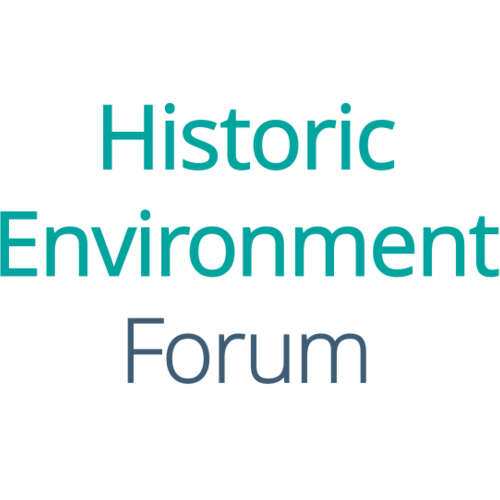
How should heritage be funded? What are the opportunities and challenges around public, private and philanthropic funding models? These are some of the key questions underpinning the 2024 Heritage Debate. This year the The Historic Environment Forum worked in partnership with The Heritage Alliance to produce a series of case studies which will contribute to the debate – sharing different models of funding heritage, as well as a diversity of views on the subject.

Emma Jhita, Chief Executive of the Institute of Conservation
What type of funding has been effective in supporting your work?
The key to successful funding for the Institute of Conservation (Icon) has been both ensuring a diverse range of income streams and avoiding smaller funding pots tied to challenging outputs to record or reporting requirements. Also ensuring that restrictions applied to funding awarded still enable delivery towards Icon’s strategic objectives as outlined in our Strategy 2030. As Icon’s team is fairly small, and has no staff resource solely dedicated to fundraising, it is vital that all fundraising and income generation activity (including commercially generated – i.e. via providing consultancy services / delivering research) is well-integrated into our work – both in terms of funding alignment with Icon’s objectives as an organisation but also so that stakeholder relationships are holistically beneficial. They can lead to funding, in-kind support, or benefits from partnership working. All these outcomes provide positive benefits towards Icon’s support of our membership and our work to champion the vital contribution of conservation to the heritage sector.
What setbacks have you experienced related to funding?
Some of the challenges Icon has faced have related to opportunities for investment in research and development activity. As a professional membership body, Icon’s core work is concerned with supporting its members. However, in order to share the value of conservation more widely, celebrate the work of conservators, and ensure future generations are able to access heritage via conservation, it is important that the organisation can secure funding to deliver more public-facing engagement programmes and awareness campaigns. This requires funding to resource research and provide capacity to realise these opportunities and potential growth (as an organisation and the reach and accessibility of conservation).
In addition, it can be challenging when funder reporting requirements are disproportionate to the funding available (size of award and type). For example, funding applications and reporting, when considered together, can take up so many days of staff time that the value of the funding, if achieved, is vastly diminished in real terms.
What solutions are required to address funding challenges in heritage?
Funders who are committed to the heritage sector and have the confidence to believe in an organisation’s ability to use funds wisely and deliver positive change (based on track record, future aspirations, etc). Through increasing the availability of unrestricted funding and ensuring reporting requirements aren’t onerous and add value to both the funder and the organisation/their beneficiaries, funders could really support organisations to thrive.
Valuing staff and volunteer time is key – whether in terms of time spent on applications or in facilitating programme delivery. The majority of heritage organisations exist on small and finely balanced budgets. Staff and volunteer time is a finite resource and anything funders can do to value it through their programmes will ensure expectations are more realistic and ultimately positive impact delivered is greater.

